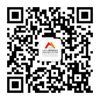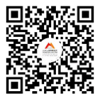10月7日,据路透社报道,美国商务部于当地时间6日将42家中国企业列入实体清单,美方指责这些企业“支持俄罗斯国防工业基础”。此前,美国也已多次制裁中国的企业、科研院校[1],将他们纳入实体清单。那么,这个在美国制裁中多次被提及的“实体清单”到底是什么?中国企业被纳入实体清单之后将有什么后果呢?
一、实体清单是什么?
实体清单(Entity List),是美国商务部下属工业与安全局(BIS)列明其出口限制对象的清单,是美国出口管制条例[2](EAR,Export Administration Regulations)的一部分,凡是被纳入该名单的实体(包括自然人、企业、科研院校、政府机构和其他组织)均为BIS限制出口的对象。实体被纳入实体清单后,任何主体在未得到许可证前,不得通过受EAR管制的方式向该实体提供受EAR管制的物项。
其中,EAR管制的方式包括以下三种[3]:
(1)出口:从美国直接出口;
(2)再出口:从美国以外的国家出口到另一个美国以外的国家;
(3)境外转移:在美国以外的国家境内进行转让。
根据EAR第734.3条[4],受EAR管制的物项(包括商品、软件与技术)包括以下四种:
(1)所有在美国境内的物项;
(2)所有原产于美国的物项;
(3)含有一定比例美国成分的物项;
(4)特定美国技术或软件的直接产品;
(5)由美国境外工厂生产的物项,但该工厂或工厂的主要部件源自美国技术或软件等。
对于列入实体清单的实体,其供应商或合作伙伴需要获得美国的特别许可证才能向其出口、再出口或转让(国内)被EAR管制的相关产品或技术。此外,BIS对大多数中国被列实体采取“推定拒绝”的许可证发放标准,可以理解为基本不批准,这种许可证发放标准意味着想获取向被列中国企业供货的许可证难度极大。
二、什么情况下会被纳入实体清单?
根据EAR第744.11条[5]的规定,最终用户审查委员会(ERC)可以根据具体和明确的事实,将有合理理由相信已经参与、正在参与或者有重大风险参与或即将参与有悖于美国国家安全或外交政策的活动的实体(包括代表此类实体行事的实体)列入实体清单。
该等活动通常包括以下五种行为:
(1)对从事恐怖主义行为的主体提供支持;
(2)或提升支持恐怖主义活动国家的军事能力;
(3)以违反美国国家安全或者外交利益的方式转让、研发、维护、修理或生产常规武器;
(4)妨碍BIS或国务院国防贸易管制局开展最终用途核查;
(5)有可能违反EAR且让最终用户审查委员会认为有必要进行许可审查的行为。
三、被纳入实体清单的影响
从实体清单的特点来看,一旦中国企业被列入实体清单,相关企业在国际贸易合作中将可能受到较大打击。
首先,在供应方面,一旦被列入实体清单,相关企业就很难获得受EAR管制的产品、软件和技术供应,即使供应商向BIS申请许可证,由于对中国企业的许可证发放标准大部分都是“推定拒绝”,意味着申请许可证的难度极大,企业的相关供应商极可能无法获得许可证,进而无法向相关企业提供商品,这样可能导致部分依赖外国供应且短时间内难以找到他国替代供应的企业在短期内遭到一定打击。
案例
中科曙光是中国高性能计算的明星企业,拥有强大的技术实力。该企业与许多美国企业均有合作。在该企业于2019年6月被美国纳入实体清单后,该公司短期内经营收入受到了一定的不利影响。
其次,在企业国际合作方面,列入实体清单以后,相关企业在国际市场寻求合作的机会特别是与美国企业合作的机会将受到限制,许多国际公司即使自身并不向实体清单中的企业供应受管制物品,但为了不违反美国出口管制的要求,避免自身受到美国制裁的波及,他们将可能在评估合规风险后,主动停止与实体清单中企业的业务往来,从而保护自身。
案例
北京天圣华信息技术有限公司是西门子工业软件在大中华区的铂金合作伙伴,于2017年成为首批通过西门子SMART EXPERT专业实施认证中的军工行业合作伙伴。但在该企业今年6月被美国纳入实体清单后,德国西门子于今年7月停止了与天圣华公司的业务往来。
最后,在企业发展方面,由于被列入实体清单的相关企业被限制了获取受EAR管制的物项,而其中包含许多涉及先进技术的物项。由于无法获取这些物项,这些企业将可能在高速的科技发展中无法获取部分先进技术的红利,在竞争中落于下风,一定程度上限制相关企业的短期技术发展。
案例
作为全球领先的通信设备制造商和5G技术的领军企业,华为在产品制造过程中需要大量的5G芯片来支持功能和性能。然而,由于受到美国芯片制裁,被列入实体清单,华为无法制造需要使用美国技术的5G芯片,也无法购买受美国出口管制的5G芯片,这在短期内为华为的市场竞争力和企业技术发展带来了一些不利影响。
四、如何从实体清单中移除?
EAR等相关法规目前并未对实体申请从实体清单中移除规定明确的条件,因此,目前仅能从相关法规与案例中推测可能的移除条件。
如前文所言,根据EAR第744.11条的规定,被列入实体清单的原因是“已经参与、正在参与或者有重大风险参与或即将参与有悖于美国国家安全或外交政策的活动”,那么,如果被列入实体清单的主体能够证明其不从事且也没有从事该等活动的重大风险,BIS可能会将其从实体清单中移除。
此外,美国工业与安全局在2013年1月16日发布的联邦公报中也提出:最终用户审查委员会在做出将某实体移出实体清单决定时,会考虑到两个因素:该主体与美国政府的合作,以及该主体承诺未来遵守EAR的规定。
同时,近年来也有中国企业将自身从实体清单移除的成功案例。中兴通讯股份有限公司和深圳市中兴康讯电子有限公司在2016年3月8日被列入实体清单,在2017年3月29日与美国商务部、司法部和财政部达成和解协议之后被移除,被移除的相关条件包括:
(1)支付近9亿美元的罚款;
(2)对公司设置3年观察期;观察期之后3年,需对公司遵循法律履行义务的情况出具年度审计报告;
(3)缓期7年的拒绝令和3亿美元罚款;
(4)为管理层、员工和控制的其他实体的管理层及员工提供出口管制培训。
综上,我们初步推测,想要从实体清单上被移除,企业可能需要满足下列条件:
(1)证明其不再从事且未来没有从事“损害美国国家安全或者外交利益的活动”的重大风险;
(2)配合美国有关政府部门解决导致其被列入实体清单的事项;
(3)承诺未来遵守EAR的规定并践行(将被设置观察期);
(4)与有关政府部门达成和解协议并支付相应金额的罚款。
五、结语
近年来美国对中国制裁打压不断,实体清单中的中国企业名单也屡次增加。正如商务部发言人所言,美国泛化国家安全,在缺乏事实依据的情况下,滥用出口管制措施,动用国家力量打击他国企业和机构的这一行为,是典型的经济胁迫和单边霸凌行径。对中国企业而言,一方面应当立足于独立自主发展,摆脱对美国产品和技术的依赖,例如华为正是在美国的制裁中,加大了自主研发力度,着力提升自家芯片设计及生产能力,才能迎难而上,持续发展,最终取得了重大突破;另一方面,为了尽量降低被纳入实体清单后受到短期内的负面影响,中国企业也可在经营过程中咨询律师等专业人士,对相关风险进行前期筛查,尽量降低被列入实体清单的可能性。
参考文献:
【1】近期美国将中国企业纳入实体清单的例子:2022年12月15日,美国商务部决定将包括长江存储、寒武纪、上海集成电路研发中心、上海微电子、深圳鹏芯微等在内的36家中国实体(包括一家长江存储日本子公司)加入实体清单。今年6月12日,美国发布联邦公报将包括中国航空工业集团612研究所在内的31家中国企业纳入实体清单,理由多涉及“帮助中国军事发展”。
【2】EAR, Export Administration Regulations是BIS最早依据EAA(Export Administration Act,出口管理法)制定并实施的出口管制细则。
【3】Export Administration Regulations, EAR
§736.2 GENERAL PROHIBITIONS AND DETERMINATION OF APPLICABILITY
(b) General prohibitions
(5) General Prohibition Five – Export, reexport, or transfer (in-country) to prohibited end-uses or end-users (End-Use End-User). You may not, without a license, knowingly export, reexport, or transfer (in-country) any item subject to the EAR to an end user or end use that is prohibited by part 744 of the EAR. Each section in part 744 specifies whether the license requirements extend to exports, reexports, and transfers (in-country).
【4】Export Administration Regulations, EAR
§734.3 ITEMS SUBJECT TO THE EAR
(a) Except for items excluded in paragraph (b) of this section, the following items are subject to the EAR:
(1) All items in the United States, including in a U.S. Foreign Trade Zone or moving intransit through the United States from one foreign country to another;
(2) All U.S. origin items wherever located;
(3) Foreign-made commodities that incorporate controlled U.S.-origin commodities, foreignmade commodities that are ‘bundled’ with controlled U.S.-origin software, foreign-made software that is commingled with controlled U.S.-origin software, and foreign-made technology that is commingled with controlled U.S.-origin technology:
(i) In any quantity, as described in § 734.4(a) of this part; or
(ii) In quantities exceeding the de minimis levels, as described in §§ 734.4(c) or 734.4(d) of this part;
(4) Certain foreign-produced “direct products” of specified “technology” and “software,” as described in § 736.2(b)(3) of the EAR; and NOTE to paragraph (a)(4): Certain foreign-manufactured items developed or produced from U.S.-origin encryption items exported pursuant to License Exception ENC are subject to the EAR. See §740.17(a) of the EAR.
(5) Certain foreign-produced “direct products” of a complete plant or any major component of a plant as described in§736.2(b)(3) of the EAR.
【5】Export Administration Regulations, EAR
§744.11 LICENSE REQUIREMENTS THAT APPLY TO ENTITIES ACTING OR AT SIGNIFICANT RISK OF ACTING CONTRARY TO THE NATIONAL SECURITY OR FOREIGN POLICY INTERESTS OF THE UNITED STATES.
(b) Criteria for revising the Entity List
Entities for which there is reasonable cause to believe, based on specific and articulable facts, that the entity has been involved, is involved, or poses a significant risk of being or becoming involved in activities that are contrary to the national security or foreign policy interests of the United States and those acting on behalf of such entities may be added to the Entity List pursuant to this section.Paragraphs (b)(1) through (5) of this section provide an illustrative list of activities that could be or represent a significant risk of being contrary to the national security or foreign policy interests of the United States, including the foreign policy interest of the protection of human rights throughout the world.
(1) Supporting persons engaged in acts of terror.
(2) Actions that could enhance the military capability of, or the ability to support terrorism of governments that have been designated by the Secretary of State as having repeatedly provided support for acts of international terrorism.
(3) Transferring, developing, servicing, repairing or producing conventional weapons in a manner that is contrary to United States national security or foreign policy interests or enabling such transfer, service, repair, development, or production by supplying parts, components, technology, or financing for such activity.
(4) Prevention of the accomplishment of an end use check conducted by or on behalf of BIS or the Directorate of Defense Trade Controls of the Department of State by:
(i) The entity precluding access to; refusing to provide information about; or providing false or misleading information about parties to the transaction or the item to be checked. The conduct in this example includes: expressly refusing to permit a check; providing false or misleading information; or engaging in dilatory or evasive conduct that effectively prevents the check from occurring or makes the check inaccurate or useless. A nexus between the conduct of the party to be listed and the failure to produce a complete, accurate and useful check is required, even though an express refusal by the party to be listed is not required; or
(ii) A sustained lack of cooperation by the host government to schedule and facilitate the completion of an end-use check of entities identified on the Unverified List pursuant to § 744.15, resulting in sufficient concern such that the End-User Review Committee believes that prior review of exports, reexports, or transfers (in-country) involving the entity and the possible imposition of license conditions or license denial enhance BIS’s ability to prevent violations of the EAR.
(5) Engaging in conduct that poses a risk of violating the EAR when such conduct raises sufficient concern that the End-User Review Committee believes that prior review of exports, reexports, or transfers (in-country) involving the party and the possible imposition of license conditions or license denial enhances BIS's ability to prevent violations of the EAR.








